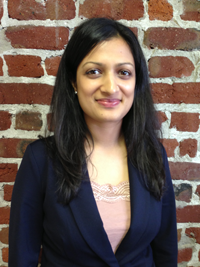
Prior to moving to Stanford to pursue my graduate degree at the GSE, I was living and working in Mumbai, India. My work experience in India ranged from conducting community-based health research in rural areas, to teaching elementary school students, to developing and managing a leadership development program for principals and teachers in schools for underserved students. Through my work, I became deeply interested in the role of education in creating a more equitable world. I came to view education as a means to either uphold or challenge the status quo -- as both a reflection of and contributor to societal norms, practices, and structures. My interests persuaded me to apply to graduate school to study international education theory and policy. Stanford’s IEAPA program was my top choice.
The small and close-knit ICE/IEAPA cohort was by far the most memorable part of the graduate experience for me. The size of the cohort, the collaborative aspects of coursework and MA research, and shared core courses fostered a deep sense of community amongst cohort members. The diversity of experience and perspectives contributed to my learning and the community formed offered an important support system. Furthermore, small class sizes and accessible faculty offered opportunities to question my perspectives and push my thinking in ways that would not have been possible had I been in a larger program and department.
In addition to the accessible network of incredible faculty, students, and alumni at the GSE, I learned a great deal through my multi-disciplinary coursework. Approaching complex issues through multiple disciplinary lenses gave me a well-rounded understanding of the field. This understanding allows me to access and interpret research and question the assumptions behind policies and practices shaping education today. Finally, the rigorous MA research process is truly what makes this program stand out. The structure provided to students and the support from faculty and teaching assistants allowed me to maximize my learning in a short period of time and deepen my thinking around issues that really mattered to me.
After graduating from the IEAPA program, I pursued a role as a research analyst for the National Equity Project, a non-profit organization that supports leaders to drive equitable and transformative change for historically underserved students and families in communities, schools, and districts across the United States. As Research Analyst, I develop and execute on the analytic work of field facing projects. I used both quantitative and qualitative methods in order to illuminate key issues and questions relating to equity and opportunity in school districts and other contexts. In addition to theory, the “hard” research skills learned through methods courses and the writing of my MA paper are invaluable in my current role. The rigor of the coursework and research process has given me the confidence to design and carry out strong research protocols on behalf of my organization.